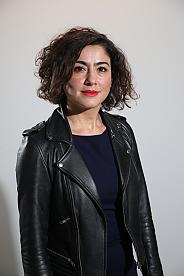Venezuela - regime change or democracy?
Venezuela - regime change or democracy?
Venezuela has been in the international spotlight for some time. Its economy is in difficulties, there’s hyperinflation, living standards are deteriorating rapidly and social unrest is growing. Falling oil prices, a one-dimensional economy based on oil exports, and failing economic policies mean that there is a shortage of food, medicines and other basic products. Democracy is under pressure and incumbent president Nicolas Maduro’s support and legitimacy are being lost as a result of his repressive actions.
By Sadet Karabulut
 Maduro won the 2013 elections with a tight majority, 1.49% ahead of his challenger Henrique Capriles. The parliamentary elections in 2015 saw Maduro’s party, the PSUV, lose its majority to the united opposition (MUD). MUD are demanding President Maduro’s resignation and are blocking his proposals in parliament, while at the same time parliamentary decisions are being blocked by the president. Although, in the view of experts, Maduro’s predecessor Hugo Chávez and the Bolivarian Revolution developed an extremely progressive and participatory constitution, Maduro took the decision to establish a constitutional assembly in order to escape the political impasse and strengthen his position.
Maduro won the 2013 elections with a tight majority, 1.49% ahead of his challenger Henrique Capriles. The parliamentary elections in 2015 saw Maduro’s party, the PSUV, lose its majority to the united opposition (MUD). MUD are demanding President Maduro’s resignation and are blocking his proposals in parliament, while at the same time parliamentary decisions are being blocked by the president. Although, in the view of experts, Maduro’s predecessor Hugo Chávez and the Bolivarian Revolution developed an extremely progressive and participatory constitution, Maduro took the decision to establish a constitutional assembly in order to escape the political impasse and strengthen his position.
On 30th July elections took place in the face of massive obstacles mounted by the opposition, which organised a boycott and have refused to participate in the constitutional assembly. In addition, there has been a great deal of criticism of the procedures being followed. The installation by the constitutional assembly of a ‘truth commission’, which will follow the opposition’s course in the run up to the regional elections in October, has done nothing to improve the situation. With the recent decision to suspend parliament because the majority refused to swear allegiance to the constitutional assembly, a total political impasse has been reached.
Amnesty International, Human Rights Watch and the UN Human Rights Council speak of serious human rights abuses, repression and the killing of members of the political opposition by the Maduro government. These human rights abuses are completely unacceptable and must stop. More than a hundred people have died during anti-government demonstrations and protests. The repression of peaceful opposition and the sacking of civil servants whose faces don’t fit is in conflict with internationally-recognised human rights. If the Venezuelan government wants to gain legitimacy, they must respect human rights, guarantee the independence of the courts, and institute an enquiry into the violence, deaths and human rights abuses.
In saying this, we should not close our eyes to the violence committed by sections of the opposition. A range of independent sources have confirmed that violent, extreme right groups have thrown bombs at police officers, set fire to a suspected Chavista and attacked a government building. These are crimes which must be dealt with, not least because violence against those who think differently to oneself, attacks, some murderous, on public authorities, or the overthrow of a democratically elected leader, are all in conflict with democracy.
Meanwhile millions of Venezuelans have become the victims of misrule and polarisation. Although Maduro is losing support, many Venezuelans fear a return to the time before the Bolivarian Revolution. The late president Hugo Chávez means a lot to ordinary Venezuelans. Against the frantic opposition of the rich oligarchy, he nationalised the oil industry and invested the proceeds in combating poverty, in education and in health care. The spectacular reduction in inequality, poverty and illiteracy that Chavism brought about cannot be denied. Many people fear being completely excluded from the political system if the opposition were again in a position to pull the strings.
The threat of tough sanctions or a US invasion under Trump’s leadership will, whatever else, not offer the Venezuelan people a decent existence. Such an intervention would not only be illegal, but also dangerous to the country’s population. It would neither reduce poverty nor put an end to the deadly violence. The risk of a civil war would only increase. At the same time we know from the invasions of Afghanistan, Iraq and Libya that bombs and regime change are above all big business for arms manufacturers, the oil industry and the established order, but that they do not bring peace and democracy to the peoples of countries affected.
The Venezuelan people should be supported by means of attempts at arbitration by independent and authoritative individuals in the region. They deserve to be taken seriously. The people are the key which can unlock the political impasse. Both the government and the opposition must put the people’s interests first by respecting the rules of democracy. Dialogue, conciliation, national sovereignty and international human rights norms represent the only way towards a democratic solution to complex problems.
- See also:
- World
